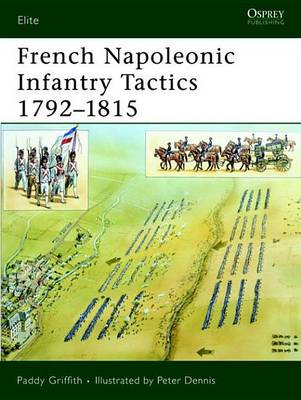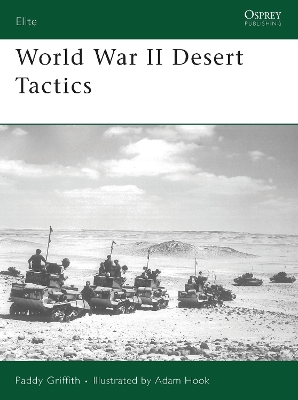Elite
1 primary work • 2 total works
Book 159
This book will provide a careful analysis of the preparation of the French troops from manual regulations to the training ground, as well a study of the changing quality of command and control within the army. Initially this ensured that the French infantry were virtually unstoppable and for several years they enjoyed blistering triumphs at Austerlitz and Jena. Paddy Griffiths explores the role of the French infantry at the apex of their powers and their role in these key battles. However, he also provides a detailed explanation of their eventual decline until their final defeat at Waterloo providing a critical overview of French Napoleonic Infantry tactics.
Osprey's study of desert tactics employed in North Africa during World War II (1939-1945). In 1940-43 North Africa saw the first major desert campaign by modern mechanized armies. The British, Italians, German Afrika Korps and US Army all addressed and learned from the special problems - human, logistical, mechanical and tactical - of the desert environment, most significantly a terrain empty of resources and offering little chance of concealment. Paddy Griffith traces the fast-learning development of armor, artillery and infantry tactics in this exceptional situation and illustrates it using references to the major engagements in the North African theater, which involved some of the greatest tacticians of World War II in one of the pivotal arenas.

